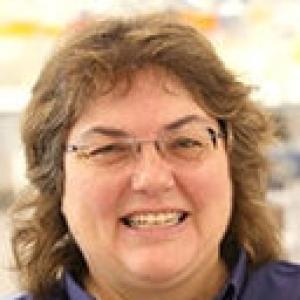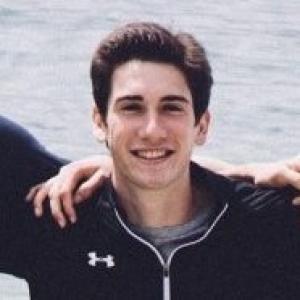Home
Our research focuses on the cellular and molecular processes involved in the growth, maintenance, adaptation, and regeneration of the neuromuscular system. We emphasize understanding stem and progenitor cell fate as well as multicellular interactions.
So far, our studies have shed light on:
1) How the aging muscular stem cell niche is regulated
2) The cellular contributions to neuromuscular synapse regeneration and lifelong maintenance
3) The roles of inflammatory signaling in muscular regeneration
4) Cellular dynamics during early childhood muscular growth and the impact of genotoxic stressors like cancer treatments during this developmental period.
We belong to the Duke University School of Medicine, Department of Orthopaedic Surgery, Cellular, Developmental, and Genome Laboratories. Additionally, we are part of the Duke Cancer Institute and collaborate with the Department of Cell Biology, and we have affiliations with Duke programs in Cell and Molecular Biology, Genetics and Genomics, and Development and Stem Cell Biology.
Research
Neuromuscular growth, adaptation, and long-term health:
Childhood is an important period of neuromuscular growth. Deficits in adolescent musculature are associated with higher indices of metabolic syndrome, cardiovascular disease, and susceptibility to aging-related disorders such as osteoporosis and sarcopenia. Stem and progenitor cell activity contributes to pediatric skeletal muscle growth, which is sensitive to genotoxic stressors, including cancer therapies such as radiation or chemotherapy; however, the mechanisms underlying these phenomena remain unclear. We propose to address this problem through projects that examine the relationship between multicellular crosstalk, stem and progenitor cell fate, and neuromuscular-regulated myofiber properties to pediatric neuromuscular growth and long-term health in murine models of postnatal growth, and cancer treatment and survivorship.
Neuromuscular maintenance and regeneration:
In response to a debilitative degenerative injury to the neuromuscular system, functional recovery, particularly in the elderly, is often delayed or incomplete, accelerating disability and frailty, which impacts activities of daily living, quality of life, and risk for falling and fractures. Although neuromuscular disruption occurs, little is known about the mechanisms responsible for the restoration of neuromuscular integrity after debilitative degenerative injury and the extent to which they become disrupted with aging. We propose to address this problem through projects that examine the relationship between neuromuscular integrity, neuromuscular-regulated myofiber properties, injury responses, multicellular crosstalk, and stem and progenitor cell function to neuromuscular recovery in murine models of debilitative degenerative nerve or muscle injury.
Current studies employ:
- Genomics to identify the cellular basis for persistent stress and adaptation in the musculature after pediatric insult or neuromuscular degenerative injury.
- Mouse genetic strategies to understand the mechanisms that contribute to adaptations and recovery after pediatric insults or neuromuscular degenerative injury.
- Degenerative injury models, cancer treatment models, physiology, and exercise modalities.
- Flow cytometry, fluorescent activated cell sorting strategies, and primary and immortalized cell culture systems.
- Imaging platforms, such as confocal immunofluorescence microscopy, are used to examine neuromuscular integrity, neuromuscular-regulated myofiber properties, and stem and progenitor cell fate.
Grants
Role of GDF15 in genotoxic stress induced regulation of skeletal muscle fibro-adipogenic progenitor activity, fibrosis, growth, and regeneration.
J Chakkalakal ⸱ National Cancer Institute ⸱ 2024 - 2029
Genetic and Therapeutic Approaches to Alleviate the Pathology of Massive Rotator Cuff Tears
MJ Hilton , +1 collaborator ⸱ National Institutes of Health ⸱ 2024 - 2026
Understanding and engineering the relationship of muscle stem cells with the neuromuscular junction in aging
CA Aguilar ⸱ University of Michigan ⸱ 2023 - 2026
Cellular Basis for Radiation induced acceleration of Sarcopenia in Juvenile Cancer Survivors
J Chakkalakal ⸱ National Institutes of Health ⸱ 2017 - 2023
Chondrocyte DNA Double-Strand Breaks in the Pathogenesis of Osteoarthritis
J Jonason ⸱ University of Rochester ⸱ 2022 - 2025
Engineering Heterocellular Human Skeletal Muscle Tissues to Recreate and Study Native Stem Cell Niche Function
N Bursac , +3 collaborators ⸱ National Institutes of Health ⸱ 2024 - 2029
Engineering a Human Skeletal Muscle Tissue Model of LGMD2B
N Bursac , +3 collaborators ⸱ National Institutes of Health ⸱ 2023 - 2028
Notch Signaling in non-myogenic mesenchymal cells regulates muscle development
MJ Hilton , +1 collaborator ⸱ National Institutes of Health ⸱ 2020 - 2023
Training Program in Developmental and Stem Cell Biology
DL Silver , +60 collaborators ⸱ National Institutes of Health ⸱ 2001 - 2027
Cell and Molecular Biology Training Program
MS Boyce , +127 collaborators ⸱ National Institutes of Health ⸱ 2021 - 2026
People
Alumni Members:
- Elena Torres-Ponce, Research Technician (2022-2023)
- Alanna Klose (2013-2017) (Research Technician)
- Wenxuan Liu (2013-2017) (PhD Genetics 2017)
- Andrew Soroka (2014-2016) (MD, MSc Pathology 2015)
- Nicole Paris (2015-2021) (Postdoctoral Fellow/Staff Scientist)
- Melissa Schmalz (2016-2017) (Research Technician)
- John Bachman (2017-2021) (PhD Pathology 2021)
- Romeo Blanc (2017-2021) (Postdoctoral Fellow)
- Thomas O’Connor (2018-2020) (MSc Genetics 2020)
- Jacob Kallenbach (2018-2021) (PhD Biomedical Engineering 2021)
- Esraa Furati (2018-2022) (Graduate Student in Pharmacology and Physiology)
- Sophia Forman (2015-2017) (Undergraduate Student)
- Amanda Mitchell (2018) (Summer Scholars Undergraduate Student)
- Ketsia Seide (2019) (Summer Scholars Undergraduate Student)
- Haley Orciuoli (2021) (Undergraduate Student)
- Ava Schwartz (2021) (Undergraduate Student)
Publications
Selected Publications
- Chakkalakal JV, Stocksley MA, Harrison MA, Angus LM, Deschenes-Furry J, St-Pierre S, Megeney LA, Chin ER, Michel RN, Jasmin BJ. Expression of utrophin A mRNA correlates with the oxidative capacity of skeletal muscle fiber types and is regulated by calcineurin/NFAT signaling. Proc Natl Acad Sci U S A. 2003 Jun 24;100(13):7791-6. doi: 10.1073/pnas.0932671100. PMID: 12808150
- Chakkalakal JV, Nishimune H, Ruas JL, Spiegelman BM, Sanes JR. Retrograde influence of muscle fibers on their innervation revealed by a novel marker for slow motoneurons. Development. 2010 Oct;137(20):3489-99. doi: 10.1242/dev.053348. PMID: 20843861
- Chakkalakal JV, Jones KM, Basson MA, Brack AS. The aged niche disrupts muscle stem cell quiescence. Nature. 2012 Oct 18;490(7420):355-60. doi: 10.1038/nature11438. PMID: 23023126
- Chakkalakal JV, Christensen J, Xiang W, Tierney MT, Boscolo FS, Sacco A, Brack AS. Early forming label-retaining muscle stem cells require p27kip1 to maintain the primitive state. Development. 2014 Apr;141(8):1649-59. doi: 10.1242/dev.100842. PMID: 24715455
- Liu W, Wei-LaPierre L, Klose A, Dirksen RT, Chakkalakal JV. Inducible depletion of adult skeletal muscle stem cells impairs the regeneration of neuromuscular junctions. Elife. 2015 Aug 27;4. doi: 10.7554/eLife.09221. PMID: 26312504
- Liu W, Klose A, Forman S, Paris ND, Wei-LaPierre L, Cortés-Lopéz M, Tan A, Flaherty M, Miura P, Dirksen RT, Chakkalakal JV. Loss of adult skeletal muscle stem cells drives age-related neuromuscular junction degeneration. Elife. 2017 Jun 6;6. doi: 10.7554/eLife.26464. PMID: 28583253
- Bachman JF, Klose A, Liu W, Paris ND, Blanc RS, Schmalz M, Knapp E, Chakkalakal JV. Prepubertal skeletal muscle growth requires Pax7-expressing satellite cell-derived myonuclear contribution. Development. 2018 Oct 25;145(20). doi: 10.1242/dev.167197. PMID: 30305290
- Blanc RS, Kallenbach JG, Bachman JF, Mitchell A, Paris ND, Chakkalakal JV. Inhibition of inflammatory CCR2 signaling promotes aged muscle regeneration and strength recovery after injury. Nat Commun. 2020 Aug 20;11(1):4167. doi: 10.1038/s41467-020-17620-8. PMID: 32820177
- Kallenbach JG, Bachman JF, Paris ND, Blanc RS, O’Connor T, Furati E, Williams JP, Chakkalakal JV. Muscle-specific functional deficits and lifelong fibrosis in response to paediatric radiotherapy and tumour elimination. J Cachexia Sarcopenia Muscle. 2022 Feb;13(1):296-310. doi: 10.1002/jcsm.12902. Epub 2022 Jan 8. PMID: 34997696
Research Opportunities
- Small animal models of degenerative muscle injury, longitudinal physiology, and syngeneic tumor growth/treatment.
- Flow cytometry applications.
- Large-scale single cell and spatial analysis.
If you are interested in joining the Chakkalakal Lab team, contact joe.chakkalakal@duke.edu.




